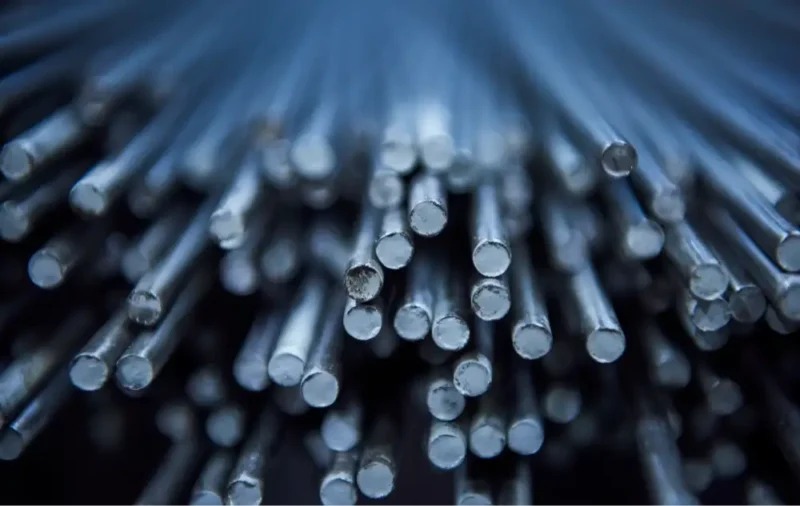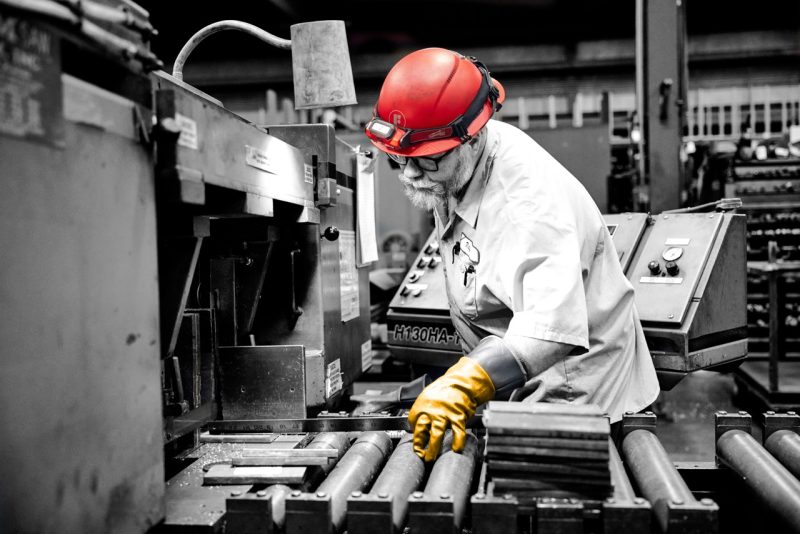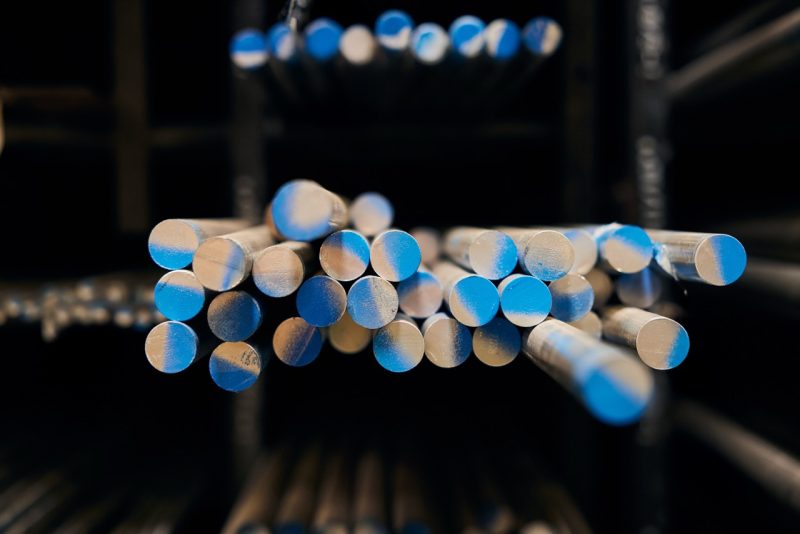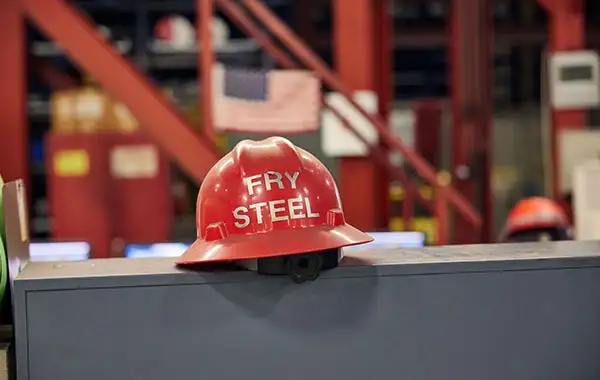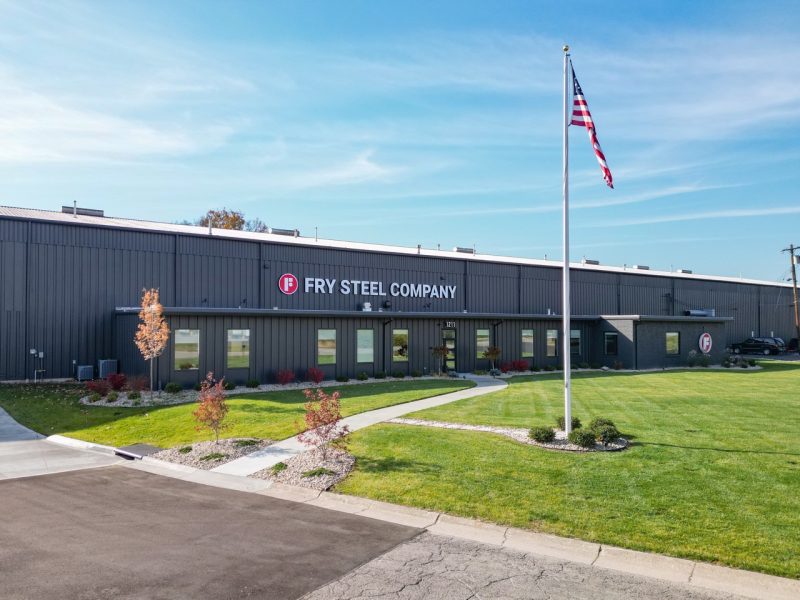In the aerospace industry, safety, performance, and efficiency are everything, and it all begins with materials. Sourcing the right materials directly impacts factors ranging from your manufacturing process to performance, longevity, and long-term costs.
For the best results, it’s imperative to begin with the best materials, and there’s no better choice than alloys. These blended materials are made of a combination of high-performing elements for a final result that features the best qualities of its parts. Interested in learning more about aircraft alloys? Read on to learn all about them, their benefits, and the most common aerospace alloy types to help guide your selection.
What are Alloys?
Alloys are materials that are made by combining metal with other metals or elements. These new materials feature the benefits of both materials for an improved product. Steel, for instance, is an alloy made of iron and carbon. Because of the addition of carbon, steel is stronger than iron alone.
The Benefits of Alloys in Aerospace and Aviation
Alloys are the most common commercial aerospace metals, and for good reason. Alloys offer a unique set of benefits in the aerospace and aviation industries. These include:
- Better strength-to-weight ratio: Compared to non-alloys, alloys have a significantly higher strength-to-weight ratio, which can improve fuel efficiency and allow for a higher payload capacity.
- Greater fatigue strength: Fatigue strength is a measure of a material’s ability to withstand stress without fracturing. This factor is essential when it comes to alloys for aerospace applications.
- Higher temperature tolerance: Certain alloys, like nickel-based alloys, are also capable of withstanding much higher temperatures than traditional metals. These materials are an ideal choice for aerospace turbines, exhaust systems, and other components that are regularly exposed to very high temperatures.
- More resistant to corrosion: Many alloys have greater resistance to corrosion caused by extreme temperatures, high moisture levels, chemicals, and more. When used in aircraft, these alloys help lower maintenance needs.
Common Aircraft Alloys
Certain alloys excel in the aerospace industry—but not all. Read on to learn about the most common aviation alloy types, what makes them excellent choices, and their best applications.
Aluminum Alloys
Aluminum alloys are among the most widely used in the aerospace industry. They’re favored for their light weight, which enables easier aircraft maneuvering, higher payload, and corrosion resistance, resulting in a longer lifespan of components made from this material. Aluminum alloys also tend to be highly machineable and formable. They can be easily manufactured into complex and intricate shapes.
Aluminum alloys in aerospace are commonly used to make:
- Fuselages: Aluminium alloys are a go-to choice for the skin and structure of fuselages due to their high damage tolerance, a measure of the ability to withstand cracks and other types of damage without failure.
- Wings: Similarly, these alloys are commonly used in wing skins, ribs, and stringers, which can experience high levels of stress.
- Landing gear: High-strength aluminum alloys like 7075 also excel at handling impact, making them a good choice for landing gear components.
Stainless Steel Alloys
Stainless steel makes an excellent aviation alloy type due to its ability to withstand very high temperatures; some grades of stainless steel can withstand temps over 2,000°F. It also tends to be highly resistant to corrosion and fatigue, making for long-lasting aerospace components.
This aircraft alloy is used to manufacture:
- Engine components: Stainless steel’s remarkable temperature resistance makes it a great choice for engine components that experience high temperatures.
- Fasteners and joints: This aerospace alloy steel is also very strong and highly durable. It’s a reliable choice for the joints and fasteners that connect different components together.
- Hydraulic lines: An aircraft’s hydraulic lines carry pressurized hydraulic fluid. They need to be able to withstand high pressure and corrosion, both capabilities of stainless steel.
Nickel-Based Alloys
Like stainless steel alloys, nickel-based alloys can also withstand extreme heat nearing 2,000°F. They’re uniquely strong and creep-resistant, meaning they’re highly resistant to deforming under stress. This results in greater safety and lower maintenance needs in the long term.
Nickel-based aircraft alloys are often used to construct:
- Combustors: Nickel-based alloys are used in combustors due to their resistance to high pressure and high temps.
- Turbine blades: An aircraft’s turbine blades also operate under extreme temperatures and are typically made of nickel-based alloys.
Selecting Aircraft Alloys: Key Considerations
Considering sourcing alloys or super-alloys for your aerospace needs? Consider these factors:
- Cost vs. reliability: The bottom line is always an important consideration, but investing in higher-cost aircraft alloys may benefit you in the long run. There’s a direct correlation between cost and quality when it comes to metals. High-quality materials can help you save on maintenance costs, downtime, and more.
- Regulatory compliance: It’s vital to meet all compliance requirements set forth by the FAA and AMS when selecting alloys for use in aerospace applications.
- Certifications: While not required, certifications like AS9100 ensure suppliers meet standards surrounding safety, quality, and reliability that result in safer and more trustworthy materials.
Fry Steel: Your Trusted Source for Aerospace Alloy Steels
For your best possible results, work with a trusted supplier who understands the ins and outs of the aerospace industry, like Fry Steel. We’re proud to be ISO 9001, AS9100 and AS9120 certified, demonstrating our commitment to meeting the highest global industry quality standard. We hold all of our suppliers to the same rigorous standard, ensuring traceability throughout the entire supply chain.
We’re proud to not only be your materials vendor, but your partner in aerospace innovation. Ready to get started? Connect with a Fry Steel rep in your region today.


